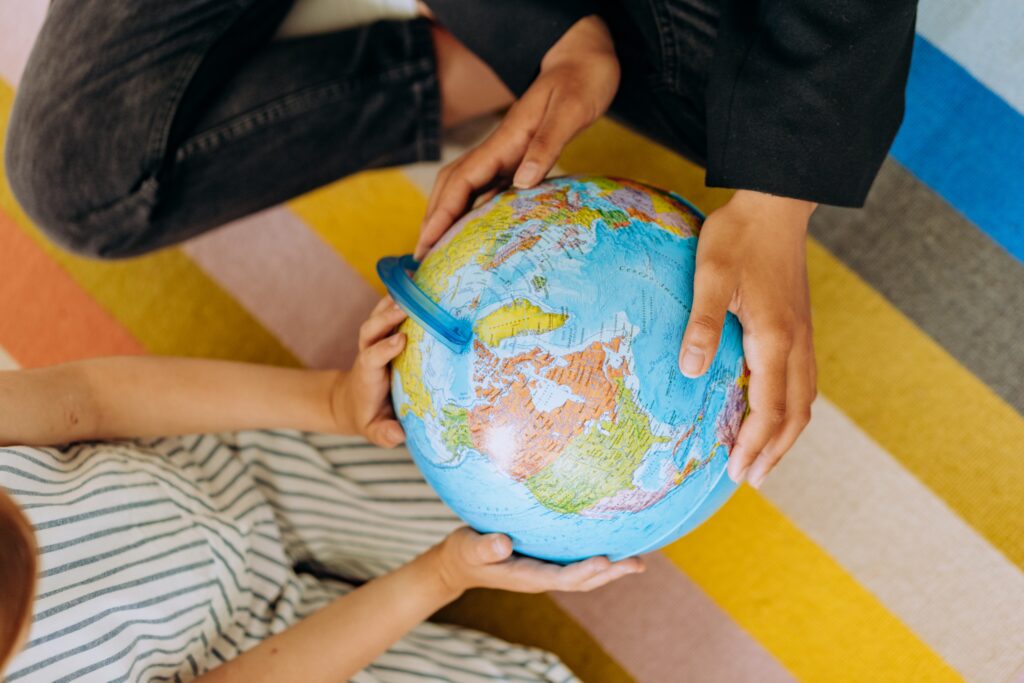
With more than 490 million native speakers around the world, Spanish is a globally important language.
It’s the second-most spoken native language after Mandarin Chinese and the fourth-most spoken language overall.
If you’re wondering what countries speak Spanish, you’re in the right place.
In this post, we’ll look at 23 countries and territories that list Spanish as one of their official languages or have significant Spanish-speaking populations.
Contents
Download:
This blog post is available as a convenient and portable PDF that you
can take anywhere.
Click here to get a copy. (Download)
Spanish-Speaking Countries and Territories
There are 20 countries and 1 territory that state Spanish as their official or national language:
| Country | Population (2021) | Language Guides |
|---|---|---|
| Mexico | 130,207,371 | Guide to Mexican Spanish Mexican slang Mexican party expressions |
| Colombia | 50,355,650 | Guide to Colombian Spanish Colombian slang |
| Spain | 47,260,584 | Guide to Castilian Spanish Guide on using vosotros Spanish slang |
| Argentina | 45,864,941 | Guide to Argentinian Spanish Argentinian slang |
| Peru | 32,201,224 | Peruvian slang |
| Venezuela | 29,069,153 | Venezuelan slang |
| Chile | 18,307,925 | Chilean slang |
| Guatemala | 17,422,821 | Guatemalan slang |
| Ecuador | 17,093,159 | Guide to Ecuadorian Spanish Ecuadorian slang |
| Bolivia | 11,758,869 | Guide to Bolivian Spanish |
| Cuba | 11,032,343 | Guide to Cuban Spanish Cuban slang |
| Dominican Republic | 10,597,348 | Guide to Dominican Spanish Dominican slang |
| Honduras | 9,346,277 | Honduran slang |
| Paraguay | 7,272,639 | Guide to Paraguayan Spanish Paraguayan slang |
| El Salvador | 6,528,135 | Guide to Salvadoran Spanish Salvadoran slang |
| Nicaragua | 6,243,931 | Nicaraguan slang |
| Costa Rica | 5,151,140 | Costa Rican slang |
| Panama | 3,928,646 | Guide to Panamanian Spanish Panamanian slang |
| Uruguay | 3,398,239 | Uruguayan slang |
| Puerto Rico | 3,142,779 | Guide to Puerto Rican Spanish Puerto Rican slang |
| Equatorial Guinea | 1,468,777 | Guide to Equatorial Guinea Spanish |
If you’re interested in learning more about the Spanish language and its variations, check out these articles:
Now let’s take a deeper look at each country and territory that speaks Spanish. This list includes a couple of places that don’t have Spanish as their official language but do have significant Spanish-speaking populations.
1. Mexico
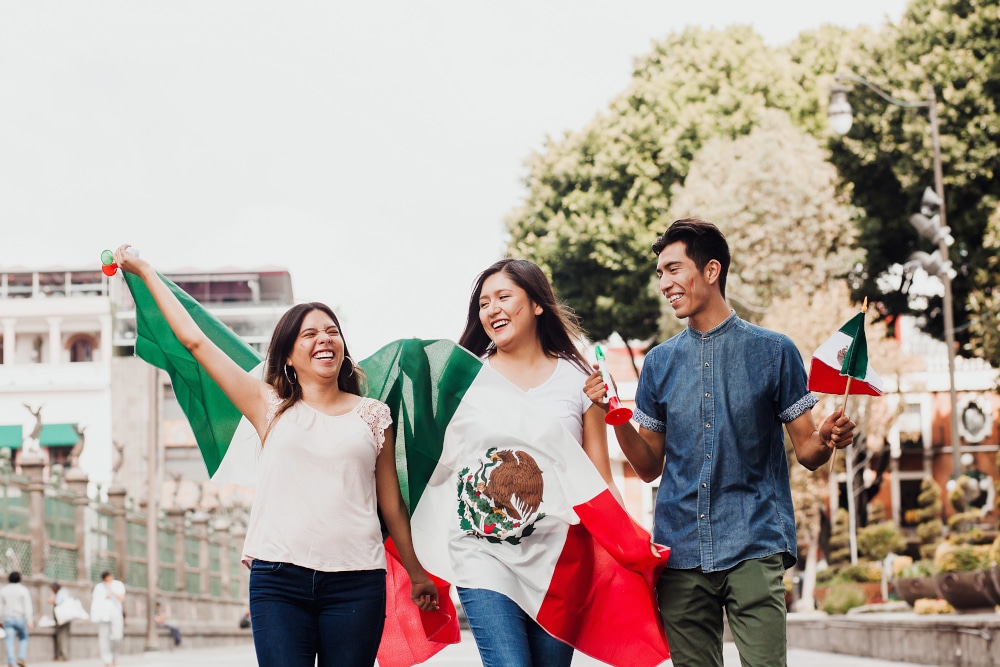
| Language: | More than 90% of Mexicans speak Spanish, which is why it’s a top destination for learning the language. |
| Location: | Located just south of the United States in North America, Mexico is largely desert, but it also has mountains, plains and rainforests. Wedged between the Caribbean and the Pacific Ocean, Mexico has an abundance of beautiful coastlines. |
| Notable Sights: | Resort towns like Acapulco are popular with beach lovers. Historic pyramids in Chichen Itza and Teotihuacán provide an intriguing glimpse into Mexico’s pre-Columbian history. |
2. Colombia
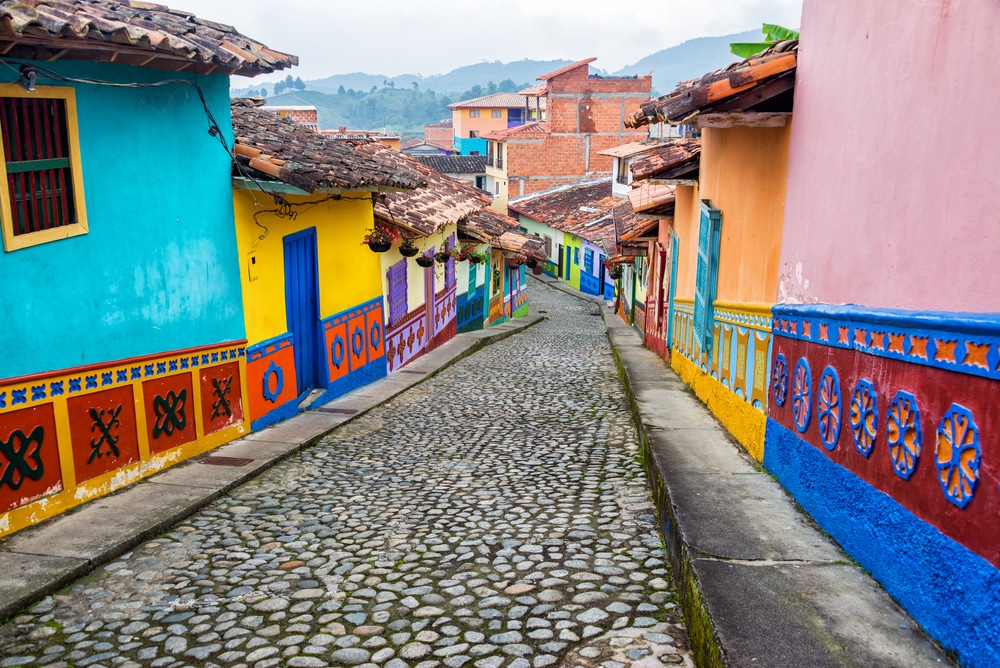
| Language: | Spanish is the official language. |
| Location: | Located on the northern coast of South America, Colombia has access to both the Caribbean Sea and the Pacific Ocean. Its landscape includes the Andes mountains to the west and the Amazon rainforest to the south and east. |
| Notable Sights: | The Amazon rainforest and beautiful beaches offer a lot, but historical cities like Cartagena and Mompox also attract tourists. Hikers might enjoy the ancient ruins of Ciudad Perdida. |
3. Spain
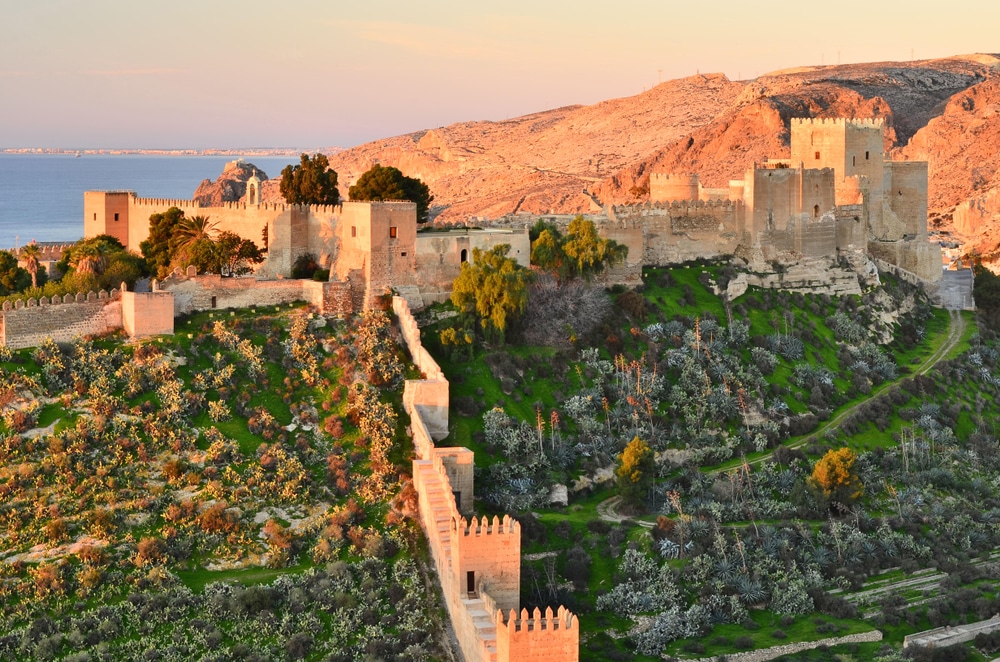
| Language: | More than 90% of people in Spain speak Castilian Spanish, while around 15% speak Catalan. A small percentage speak Galician and Basque. While Galician is similar to Castilian Spanish, Catalan and Basque are quite unique. |
| Location: | Located in Western Europe, Spain has coasts on the Atlantic Ocean and the Mediterranean Sea. The Pyrenees mountains dot Spain’s eastern border, separating it from France. |
| Notable Sights: | Some of the most popular attractions in Spain include the Alhambra Palace, La Sagrada Familia cathedral and the Royal Alcázar of Seville. Ibiza and Mallorca are well-known for their beaches and nightlife. |
4. Argentina
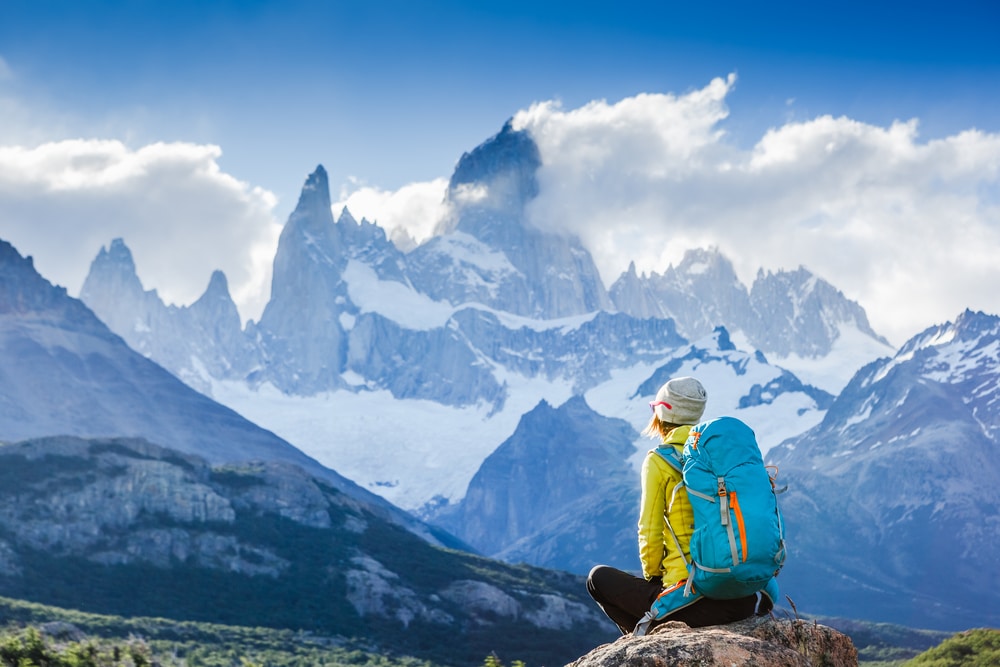
| Language: | While Spanish is the official language, several other languages are widely spoken too. |
| Location: | Located on the southeastern side of South America, Argentina has a long coastline along the Atlantic Ocean. It has plains in the east and the Andes Mountains in the west. The southwest region is subarctic, so you might even be able to spot a few penguins! |
| Notable Sights: | Ushuaia is an intriguing city called “the end of the world” because it’s close to Antarctica. You can also check out the Iguazu Falls, one of the Seven Natural Wonders of the World. Plus, national parks (with glaciers!), rainforests and lush wine regions. |
5. Peru
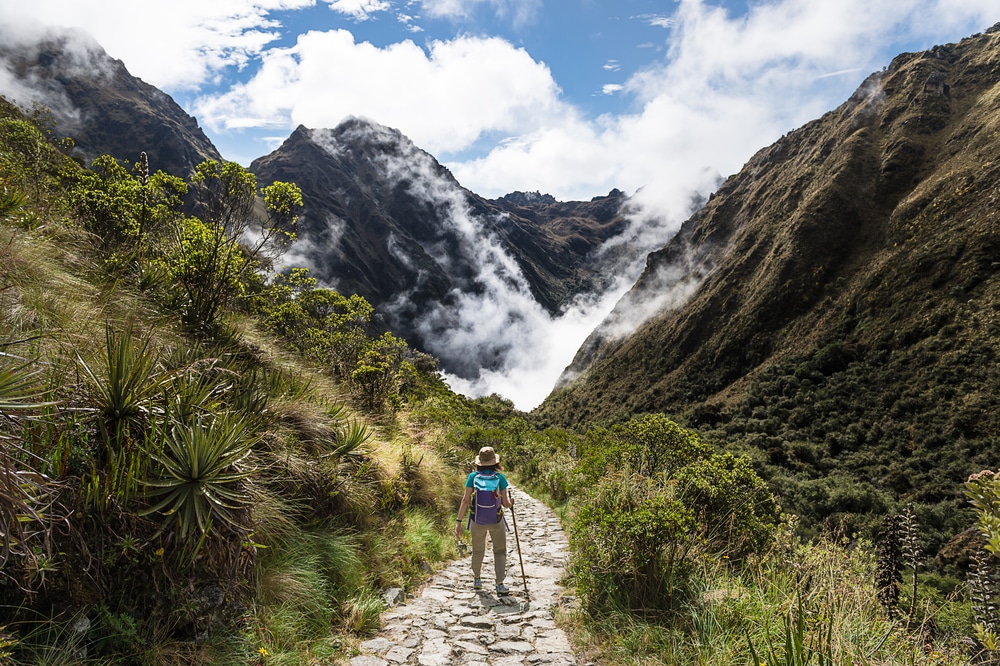
| Language: | 84.1% of the population speaks Other native languages are common in the mountains and rainforests. |
| Location: | Located in western South America, Peru is situated on the Pacific Ocean. The west is primarily desert, while the Amazon rainforest is in the east. The central region features the Andes mountain range. |
| Notable Sights: | Peru is home to Machu Picchu, a well-known and spectacular Incan ruin. To get there, you can even take the Inca Trail, one of the most highly-rated treks in the world. For a bit of history, visit Lima and Cuzco! |
6. Venezuela
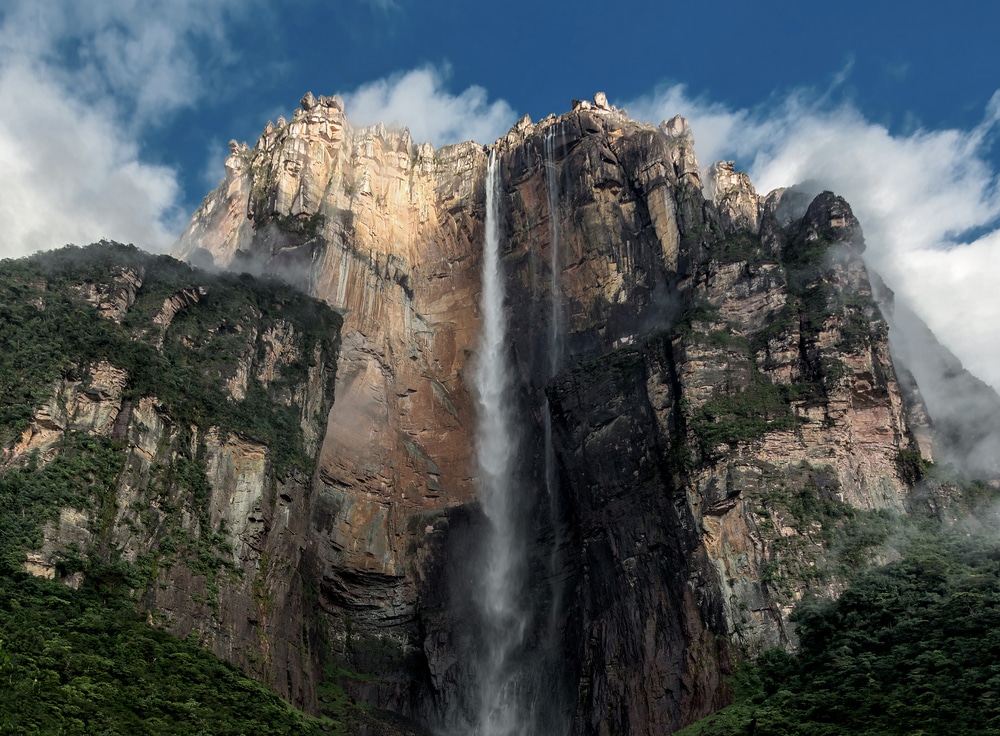
| Language: | Spanish is the official language, and other native languages are also spoken. |
| Location: | Situated on the Caribbean Sea and Atlantic Ocean, this country is in northern South America. It features the Andes mountains, plains, highlands and the Amazon rainforest. |
| Notable Sights: | Angel Falls in Canaima National Park ranks as the tallest waterfall in the world, with a height of more than 3,000 feet. Outdoor buffs can head for the beaches in Los Roques and Choroni, which feature plenty of coral reefs and wildlife. |
7. Chile
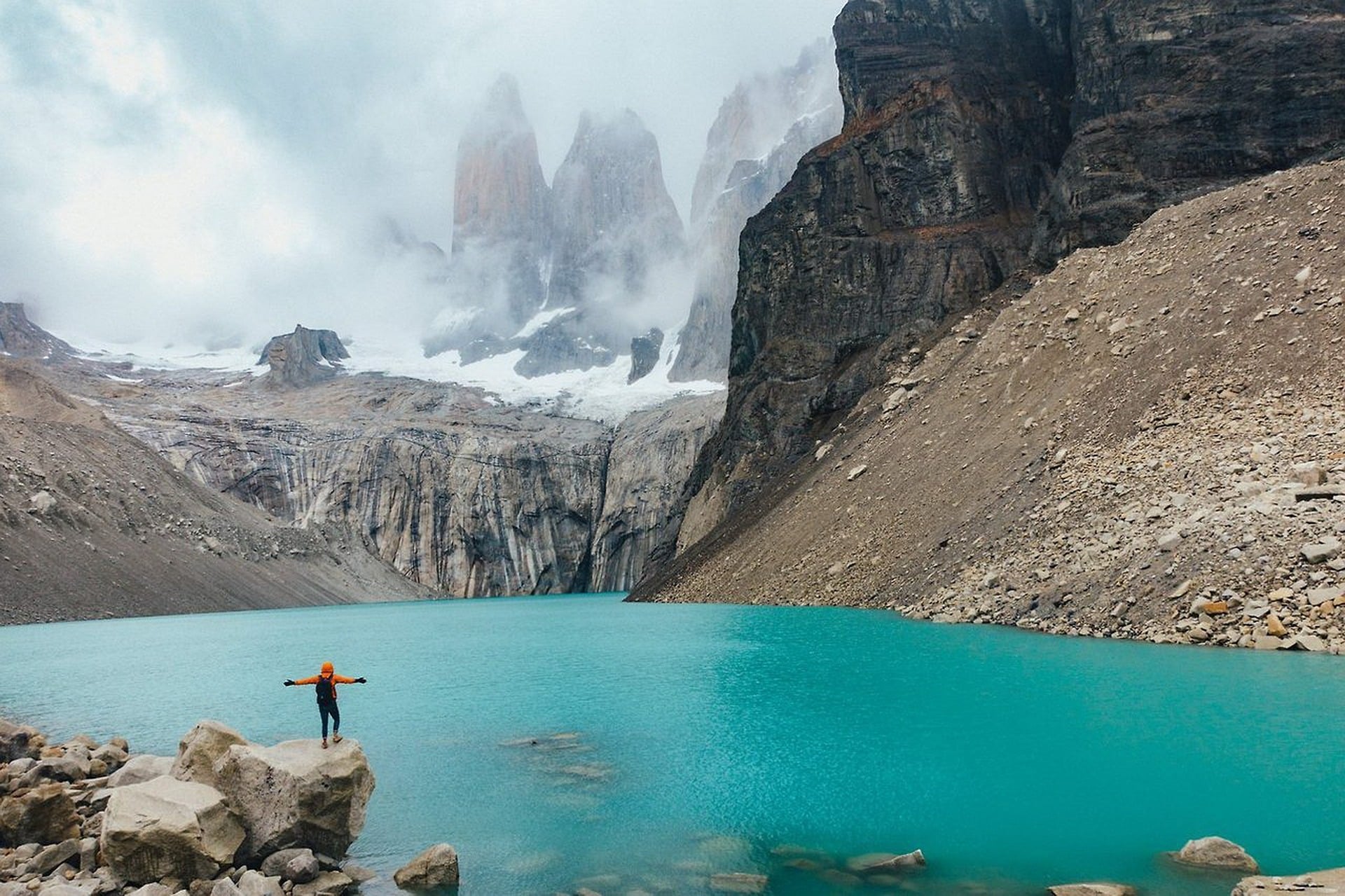
| Language: | 99.5% of Chileans speak Spanish. |
| Location: | Chile is a long, narrow country between Argentina and the Pacific Ocean. Needless to say, it has a lot of coastline in the west. It’s also got the Andes mountains in the east and the desert in the north. Like Argentina, the far southern region has its share of penguins. |
| Notable Sights: | Chile’s Punta Arenas is often a departure point for ships going to Antarctica, and you can visit it on the way to Torres del Paine, a scenic destination with lakes, glaciers and mountain trails. Another unique sight would be the romantic Valle de Luna, right at the heart of a desert. |
8. Ecuador
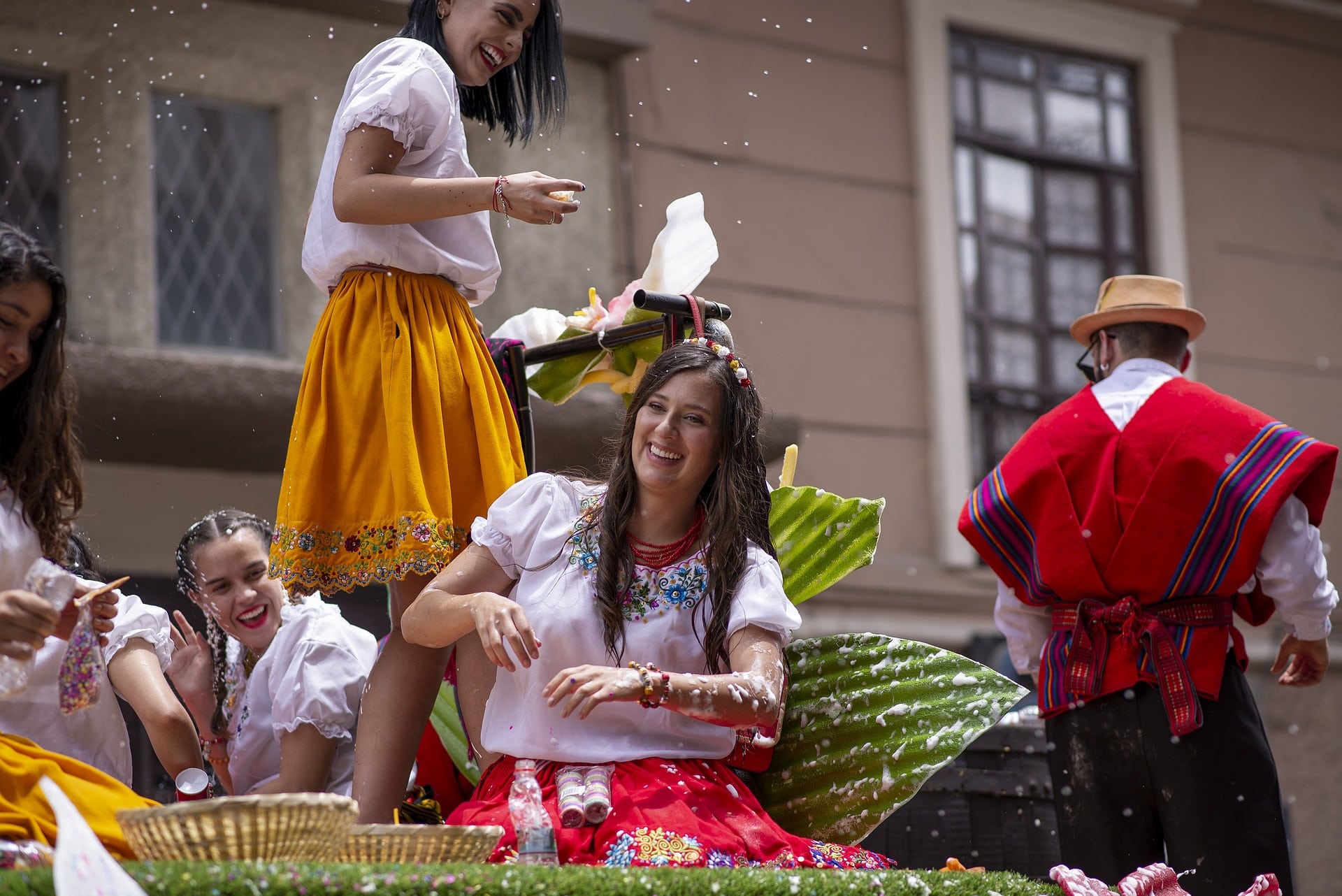
| Language: | 93% of Ecuadorians speak Spanish. Quechua, a native language, is also fairly widely spoken. |
| Location: | Located at the equator (hence the name), Ecuador is in western South America, flush against the Pacific Ocean. It includes Amazonian jungles and the Andes mountains. |
| Notable Sights: | Quito is the most highly elevated capital city in the world, and it’s a historical center with well-preserved architecture and cobblestone streets. Try out adventure sports at Baños, which is close to the Amazon! |
9. Guatemala
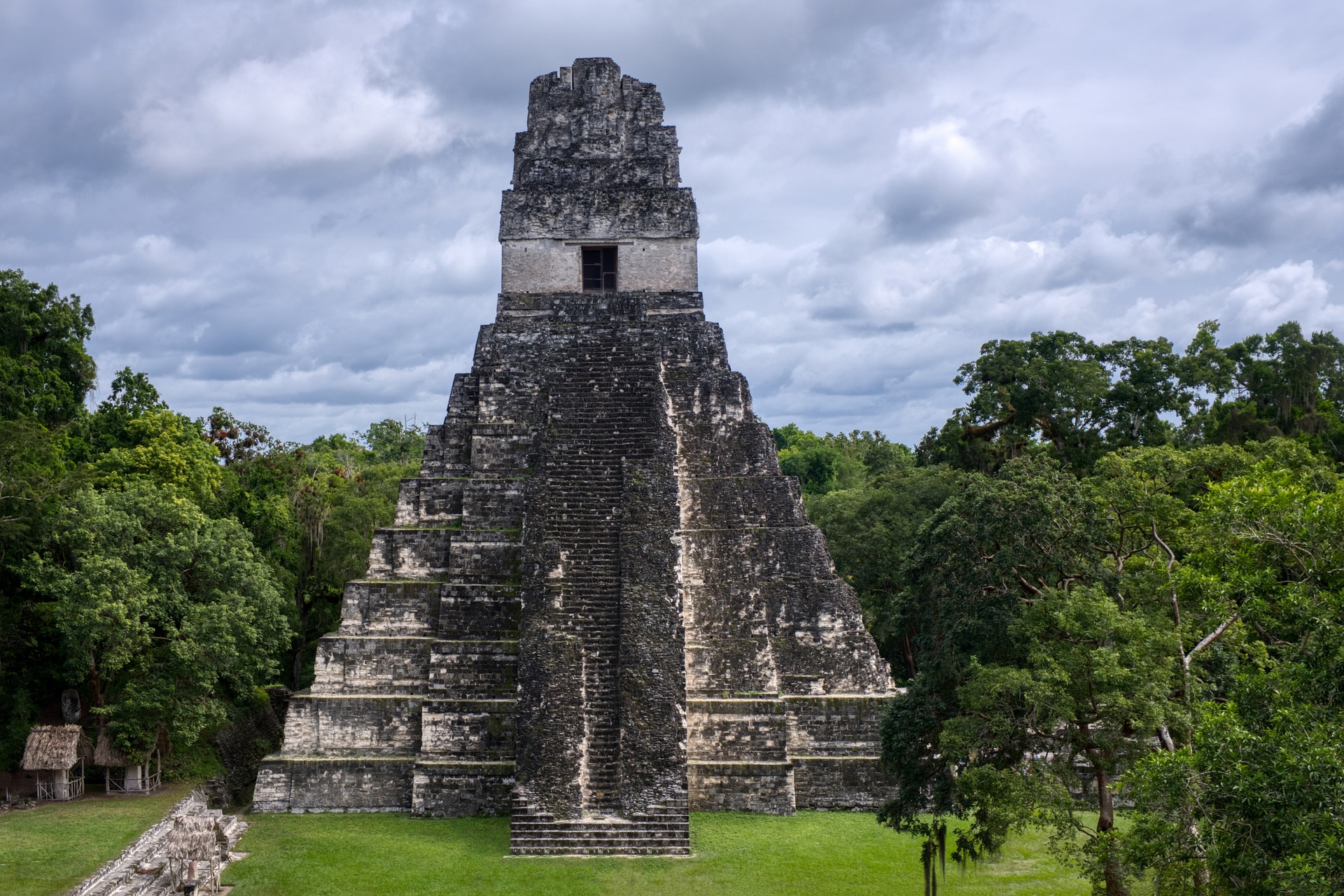
| Language: | 60% of the population speak Spanish, while the other 40% speak native languages. |
| Location: | Situated just south of Mexico, Guatemala has coasts on the Pacific and Caribbean oceans. It features mountains and rainforests. |
| Notable Sights: | Tikal features the ruins of an ancient Mayan city, surrounded by a massive forest. There’s also the scenic Lake Atitlan, with tourist towns nearby and plenty of hiking trails. Antigua lets you enjoy city life without being too far from nature. |
10. Cuba
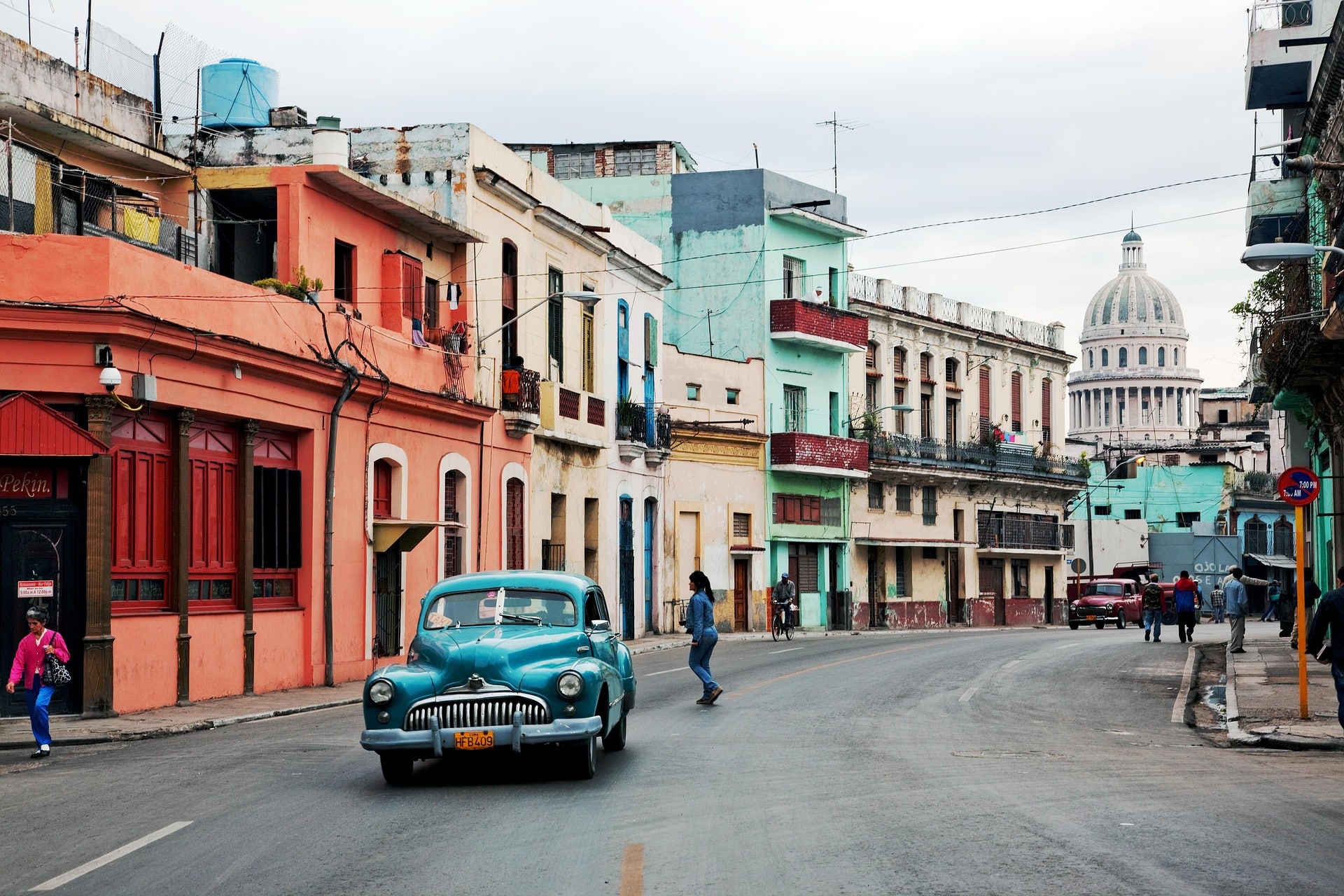
| Language: | Spanish is the official language. |
| Location: | Cuba is an island located about 100 miles south of Florida in the Caribbean Sea. It’s largely plains, but the southeast features hills and mountains. |
| Notable Sights: | Old Havana—the well-preserved central district in Havana—is popular for its old, picturesque buildings. Cuba has an abundance of gorgeous beaches as well. |
11. Bolivia

| Language: | Around 60% of the Bolivian population speaks Spanish. Native languages (primarily Quechua and Aymara) are also spoken by more than one-third of the population. |
| Location: | Landlocked in central South America, Bolivia includes a large Andean plateau called the Altiplano as well as valleys, deserts and the Amazon rainforest. |
| Notable Sights: | Salar de Uyuni consists of vast salt flats as far as the eye can see—sometimes even reflecting the sky perfectly for an otherworldly experience. The Andes Mountains and La Paz are big draws, along with the ancient ruins of Tiwanaku. |
12. Dominican Republic
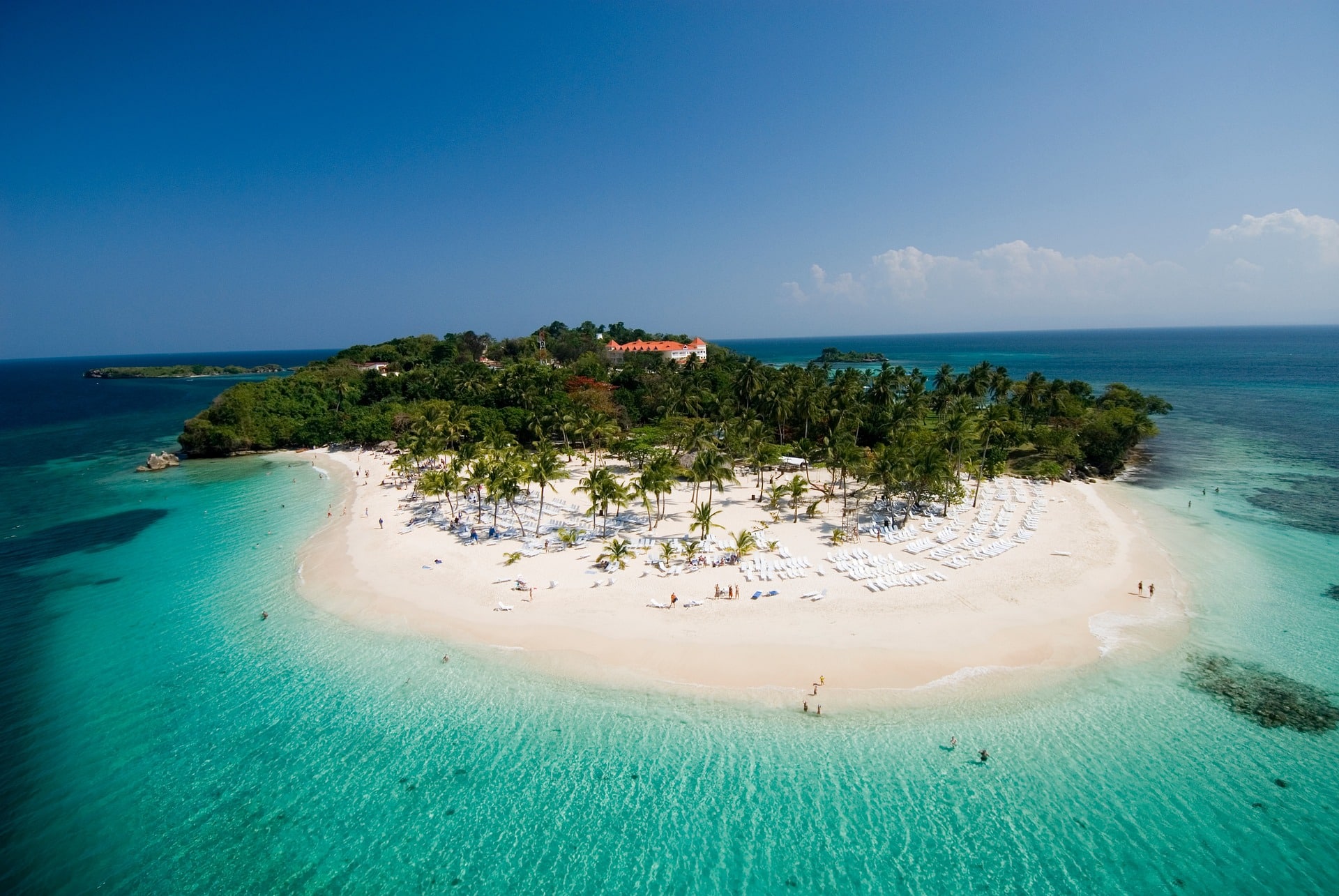
| Language: | Spanish is the official language. |
| Location: | The Dominican Republic shares an island in the Caribbean Sea with Haiti (its smaller, western neighbor). Its terrain features mountains, valleys and rainforests. |
| Notable Sights: | Santo Domingo is the oldest colonial city in the Americas, making it a worthy destination. Of course, don’t miss out on the country’s many beaches! A top destination would be Punta Cana, one of Latin America’s most visited beach towns. |
13. Honduras
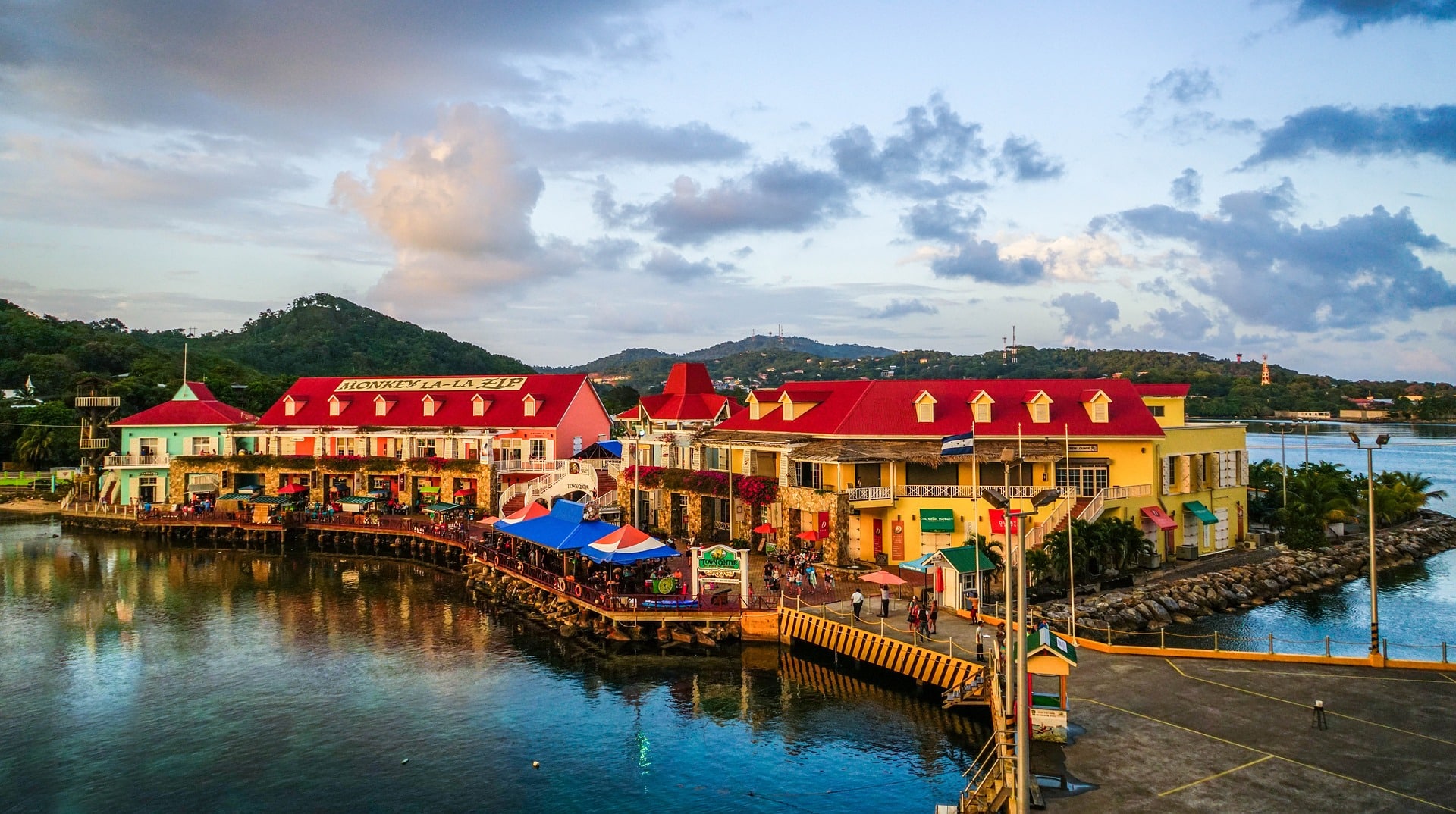
| Language: | Spanish is the official language, but native languages are also spoken. |
| Location: | Located in Central America, Honduras has a lot of coastline along the Caribbean Sea and a little on the Pacific Ocean. Its terrain is mainly mountainous, but there are rainforests, too. |
| Notable Sights: | Go back in time by exploring the Copan Ruins, a Mayan site well-known for the portrait stelae decorating the buildings. To immerse in nature, go for water activities at the Bay Islands or get a guide to take you around La Mosquitia, a massive rainforest. |
14. Paraguay
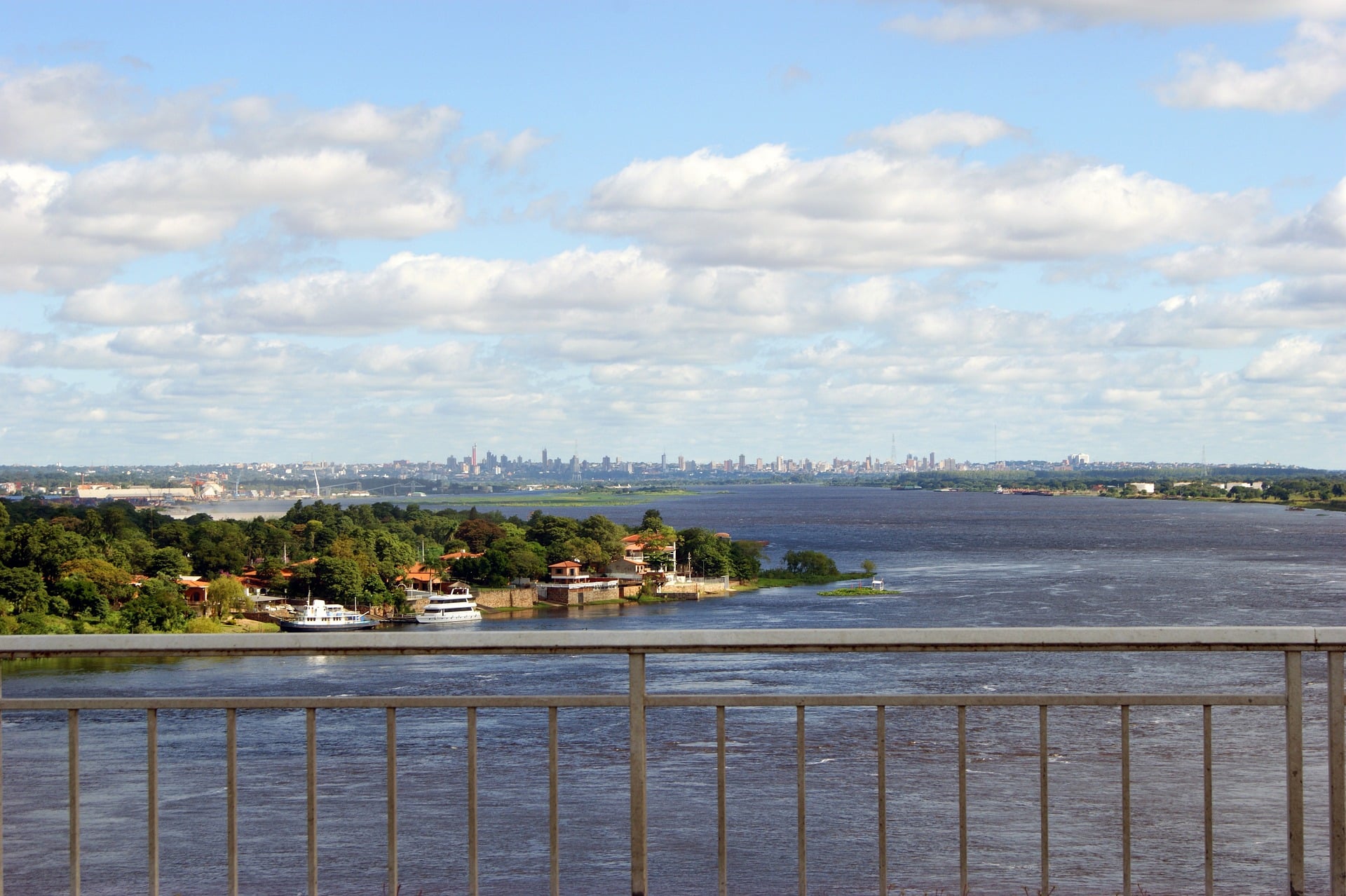
| Language: | Spanish and Guarani share the title of “official language.” The two combine sometimes to make up Paraguayan slang. |
| Location: | Landlocked in central South America, Paraguay is largely plains. |
| Notable Sights: | Some of the top attractions in Paraguay include Iguazu Falls, which is right at its borders, and Saltos del Monday. La Santísima Trinidad de Paraná is another noteworthy attraction where you can see how missionaries lived in the 17th and 18th centuries. |
15. El Salvador
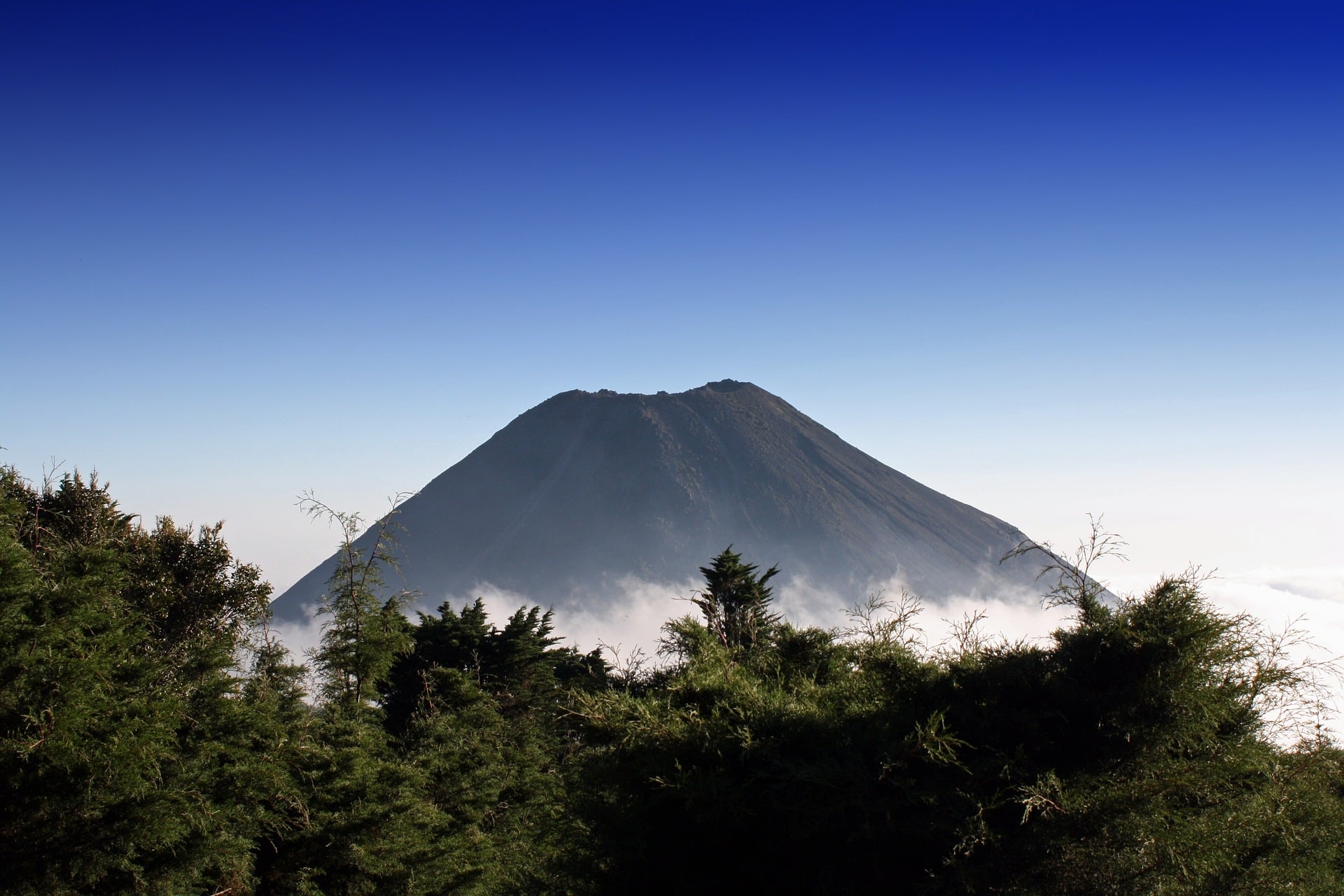
| Language: | Spanish is the official language, and Salvadoran Spanish is called Caliche. Aside from Spanish, Nawat is also spoken. |
| Location: | Tucked between Guatemala and Honduras in Central America, El Salvador abuts the Pacific Ocean. It’s largely mountainous. |
| Notable Sights: | El Salvador has several volcanic crater lakes with stunning views, and many travelers hike up the Santa Ana Volcano to see Lake Coatepeque. Aside from these, El Salvador is known for its beaches, surfing spots, and Mayan ruins. |
16. Nicaragua
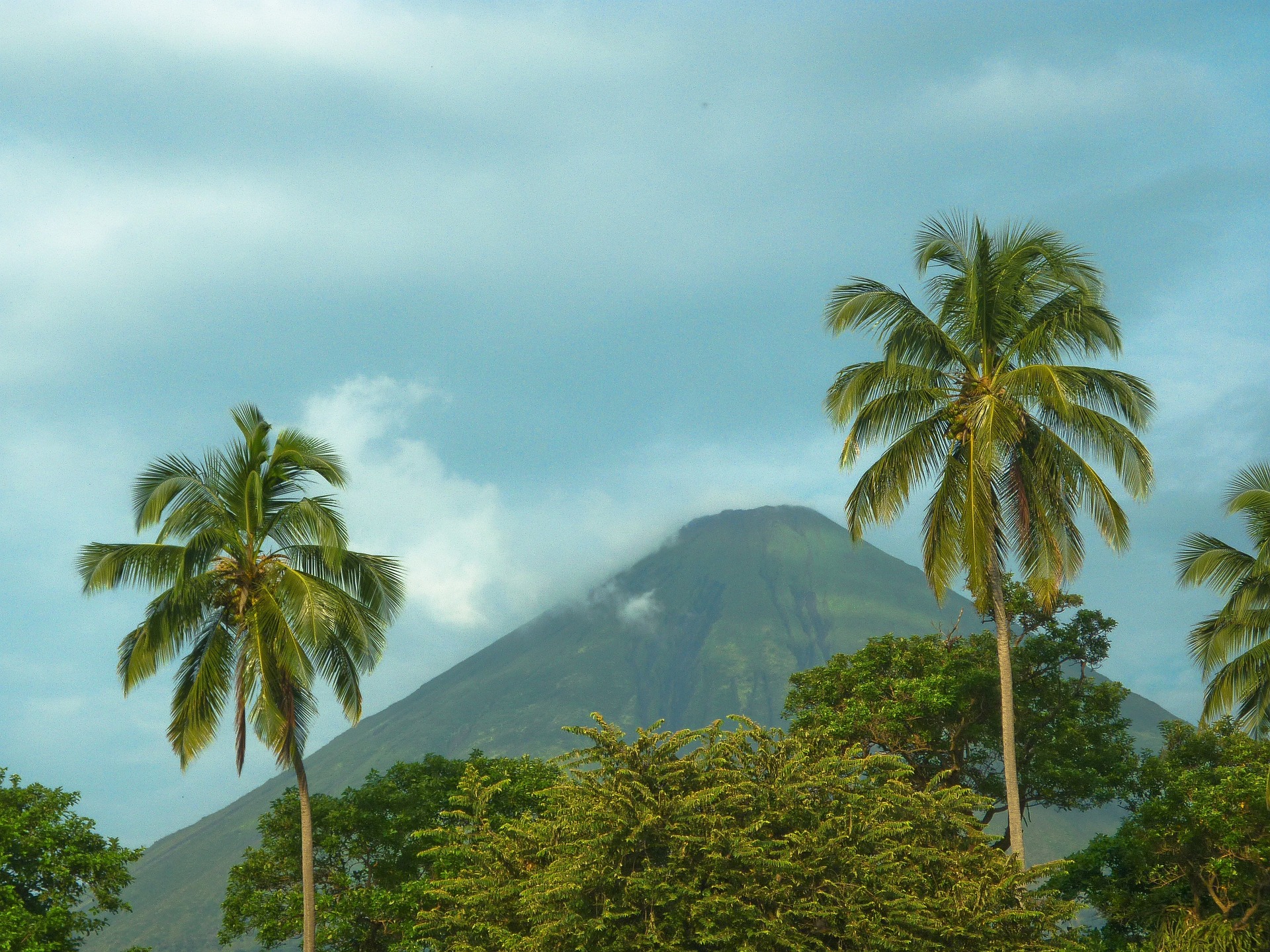
| Language: | More than 90% of the population speak Spanish. |
| Location: | Located in Central America, Nicaragua has coastlines along the Caribbean and Pacific oceans. Its terrain features rainforests and mountains. |
| Notable Sights: | Try volcano surfing at Cerro Negro—sliding down the volcano slope at heart-pumping speed. The beaches, especially Corn Island, might lure you here, with its vivid blue waters and serene views. |
17. Costa Rica

| Language: | Spanish is the official language. |
| Location: | Located in Central America, Costa Rica has both Caribbean and Pacific coasts. It’s well-known for its rainforests and volcanoes. |
| Notable Sights: | Ecotourism is widespread, with rainforests, volcanoes and beaches being particularly popular. |
18. Panama
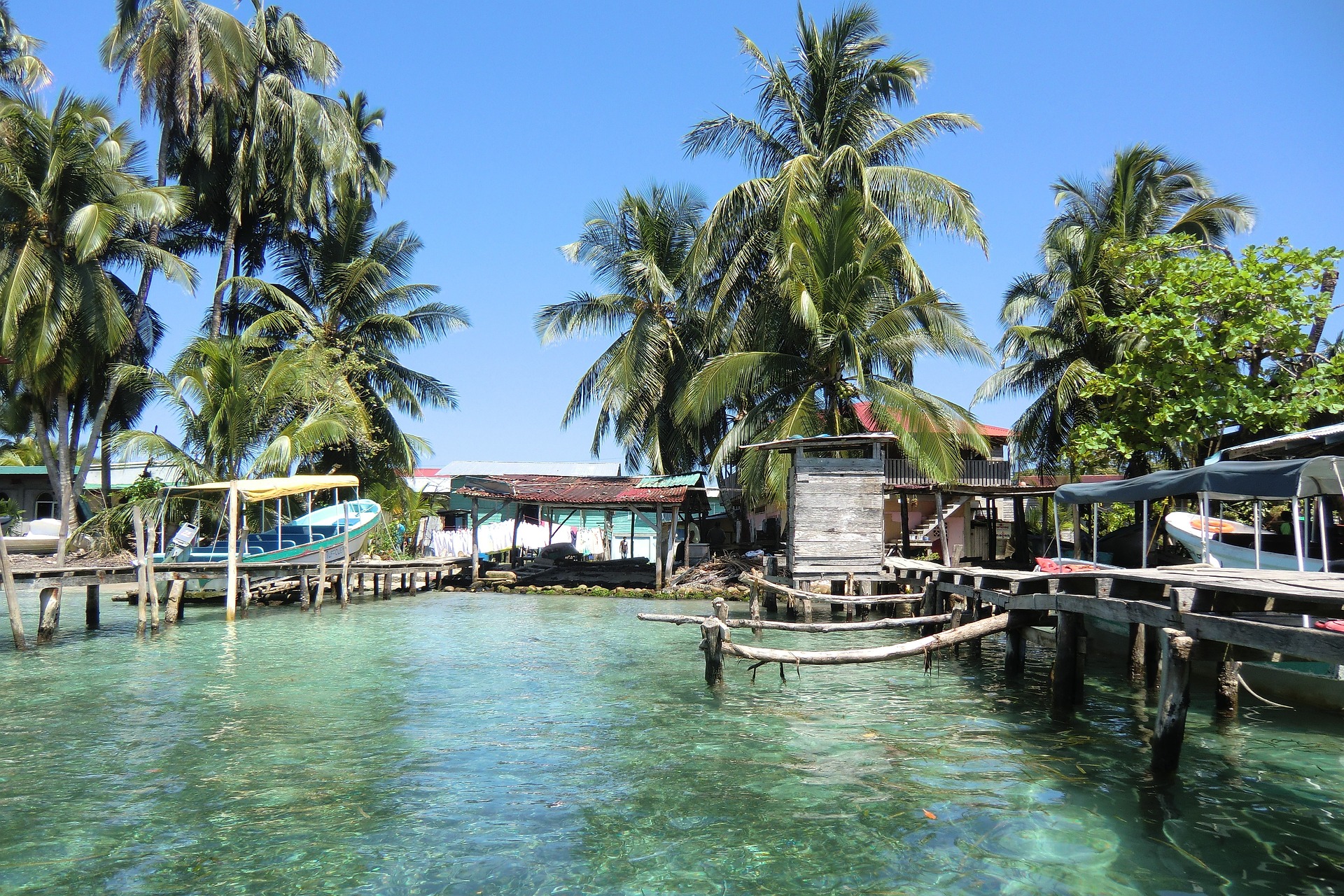
| Language: | Spanish is the official language, but native languages are also popular. Panamanian Spanish is heavily influenced by these native languages as well as English. |
| Location: | This narrow country in Central America is between the Caribbean Sea and the Pacific Ocean. Its landscape features rainforests, mountains and plains. |
| Notable Sights: | The well-known Panama Canal is an impressive engineering feat and one of the Seven Wonders of the Modern World. You can hang out at Bocas del Toro’s sun-kissed beaches or cool down at Boquete, a quaint mountain town known for coffee farms. |
19. Uruguay
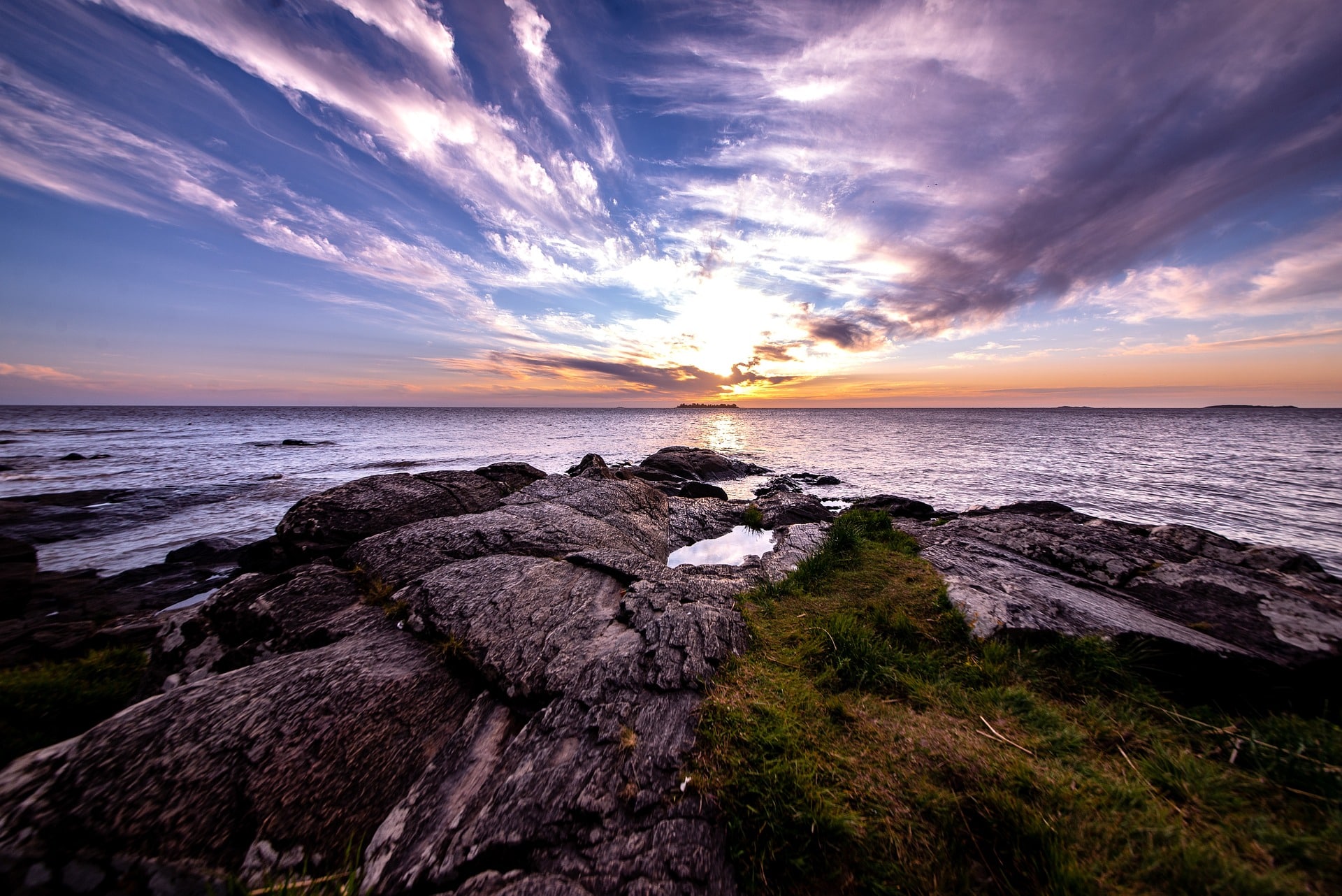
| Language: | Spanish is the official language. |
| Location: | Located on the Atlantic Coast in southern South America, Uruguay is predominantly plains. |
| Notable Sights: | Old cities and neighborhoods like Colonia del Sacramento are popular. Uruguay’s capital, Montevideo, is worth visiting because of its bustling cultural life, while Punta del Este is a lively resort town with great beaches. |
20. Equatorial Guinea
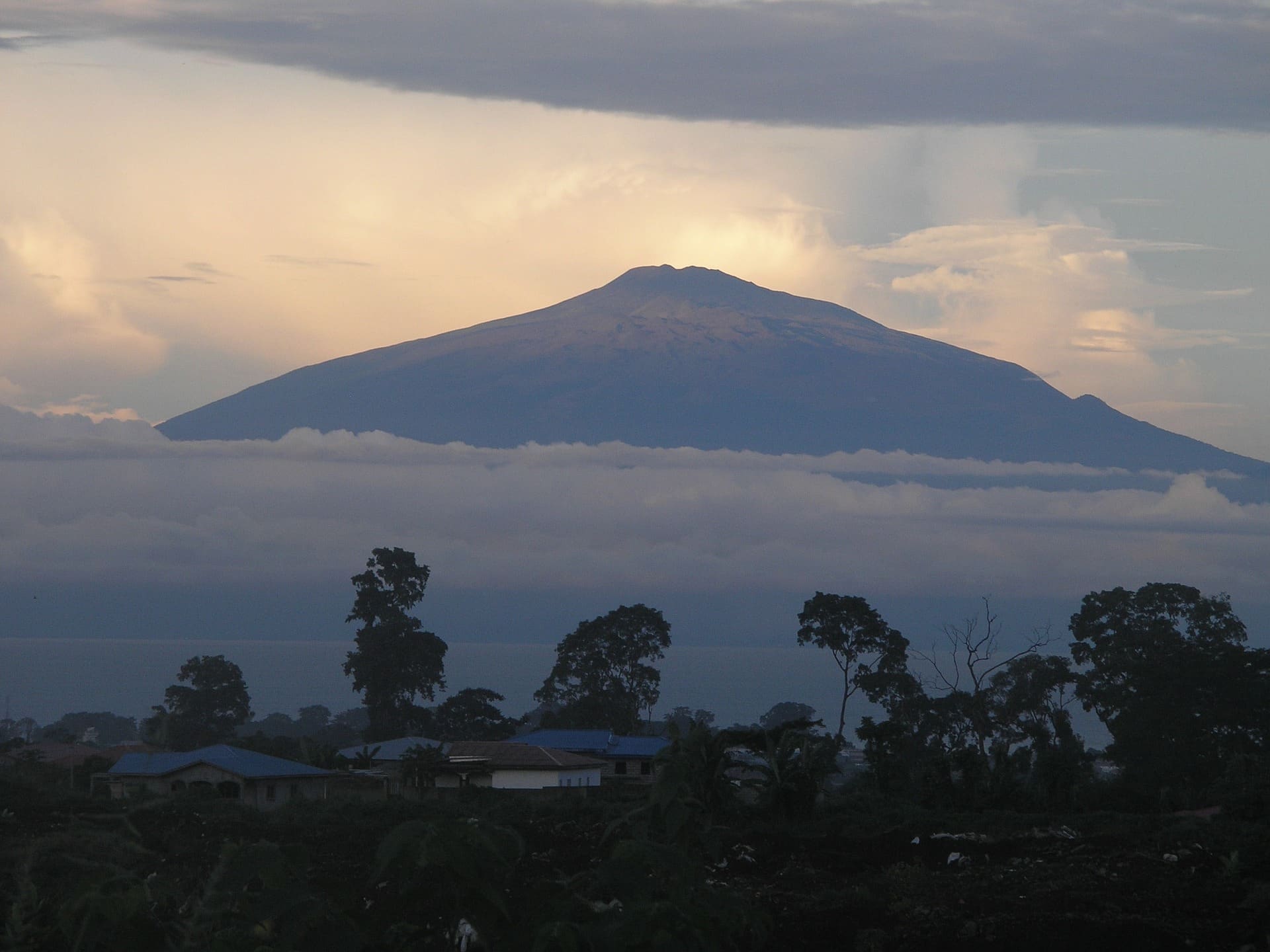
| Language: | More than 60% speak Spanish. French is another official language, but it’s not spoken as much as other local languages. |
| Location: | Consider this the unicorn of the list—Equatorial Guinea is located all the way over in Western Africa. It has a lot of natural beauty, with rainforests, beaches and mountains. |
| Notable Sights: | Equatorial Guinea is one of the least visited countries in the world, but it has fantastic sights, such as the Monte Alen National Park. The capital city of Malabo is located on Bioko Island, which has several picturesque beaches. |
21. Puerto Rico
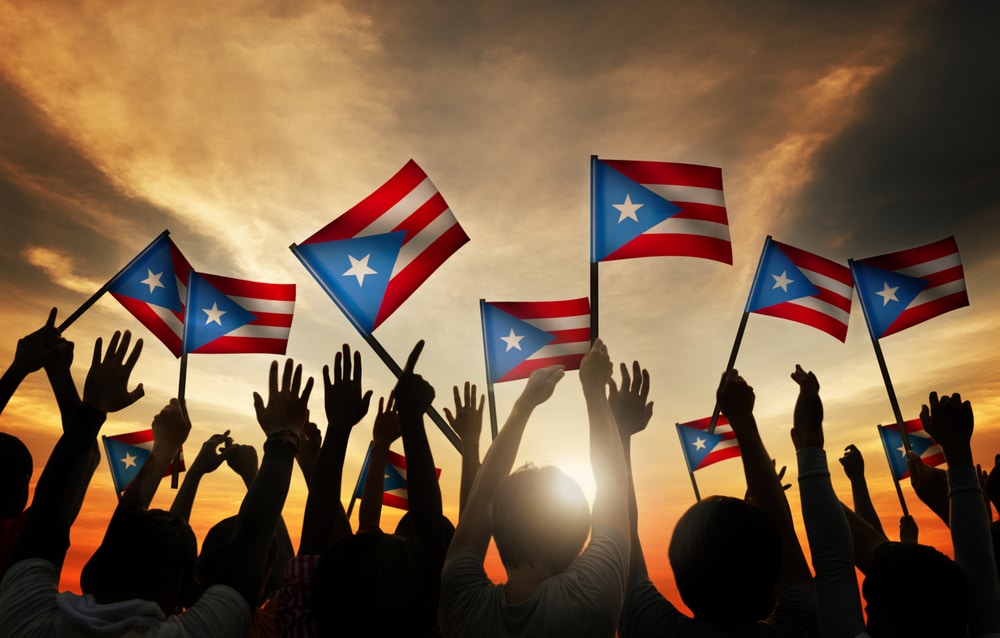
| Language: | Spanish and English are widely spoken. Of course, Puerto Rican Spanish also has distinctive slang. |
| Location: | This Caribbean island is a territory of the United States, but still quite separate and unique. It features mountains, rainforests and plenty of beaches. |
| Notable Sights: | Travelers often flock to Old San Juan for its old architecture, lively restaurants, shops and trendy nightlife. Vieques is a Caribbean beach paradise with a luminescent bay, while Rincon is great for surfing. |
22. United States

| Language: | The US doesn’t have an official language, but Spanish is the most commonly spoken language after English, with more than 50 million Spanish speakers.
That makes them the largest Spanish-speaking country after Mexico! In fact, some people predict that by 2050, one-third of people in the US will be able to speak Spanish. |
| Location: | The US shares a nearly 2,000-mile-long border with Mexico along four states: Texas, New Mexico, California and Arizona. Given its size, it has a diverse terrain, including beaches, mountains, plains, valleys and forests. |
| Notable Sights: | Consider traveling to these states with major Spanish-speaking populations:
– California: Get some sun at the fantastic Malibu and Santa Monica beaches, or take a scenic drive through Big Sur. Of course, don’t miss out on Hollywood! |
23. The Philippines
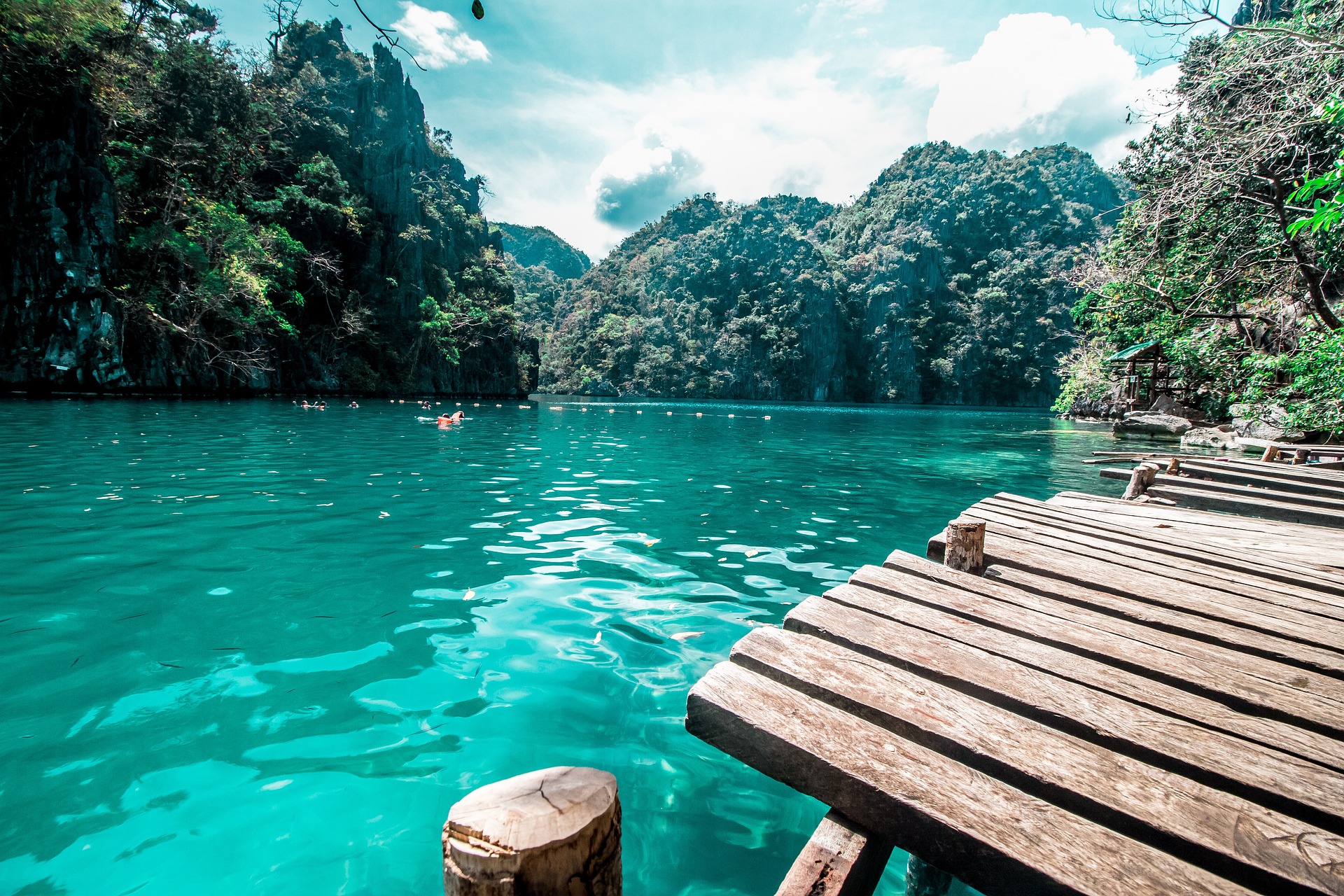
| Language: | The Philippines used to have Spanish as an official language, but it became an “optional” language in 1987. Today, Tagalog and English are the country’s official languages. Still, around 600,000 people speak a mix of Spanish and local languages called Chavacano, mostly in southern regions like Zamboanga. |
| Location: | The Philippines is an archipelago in Southeast Asia. Since it’s composed of many islands, there are many coastlines, rainforests and mountains. |
| Notable Sights: | With great reefs and beaches, the Philippines are a water lover’s dream. Boracay, Cebu and El Nido are among the top destinations. |
If you’re considering visiting one or more of these Spanish-speaking countries, you can make your visit smoother by immersing yourself in the language before you travel.
An online platform like FluentU can teach you useful vocabulary and improve your comprehension.
With so many great Spanish-speaking countries, learning Spanish seems the only logical option.
And if you are learning the language, now you know all the places you can go to practice!
Download:
This blog post is available as a convenient and portable PDF that you
can take anywhere.
Click here to get a copy. (Download)
And One More Thing…
If you’ve made it this far that means you probably enjoy learning Spanish with engaging material and will then love FluentU.
Other sites use scripted content. FluentU uses a natural approach that helps you ease into the Spanish language and culture over time. You’ll learn Spanish as it’s actually spoken by real people.
FluentU has a wide variety of videos, as you can see here:

FluentU brings native videos within reach with interactive transcripts. You can tap on any word to look it up instantly. Every definition has examples that have been written to help you understand how the word is used. If you see an interesting word you don’t know, you can add it to a vocab list.

Review a complete interactive transcript under the Dialogue tab, and find words and phrases listed under Vocab.

Learn all the vocabulary in any video with FluentU’s robust learning engine. Swipe left or right to see more examples of the word you’re on.

The best part is that FluentU keeps track of the vocabulary that you’re learning, and gives you extra practice with difficult words. It’ll even remind you when it’s time to review what you’ve learned. Every learner has a truly personalized experience, even if they’re learning with the same video.
Start using the FluentU website on your computer or tablet or, better yet, download the FluentU app from the iTunes or Google Play store. Click here to take advantage of our current sale! (Expires at the end of this month.)


![23 Countries and Territories that Speak Spanish [With Language Guides]](/wp-content/uploads/2024/02/what-countries-speak-spanish-2-e1667850540298-768x512.jpg)
